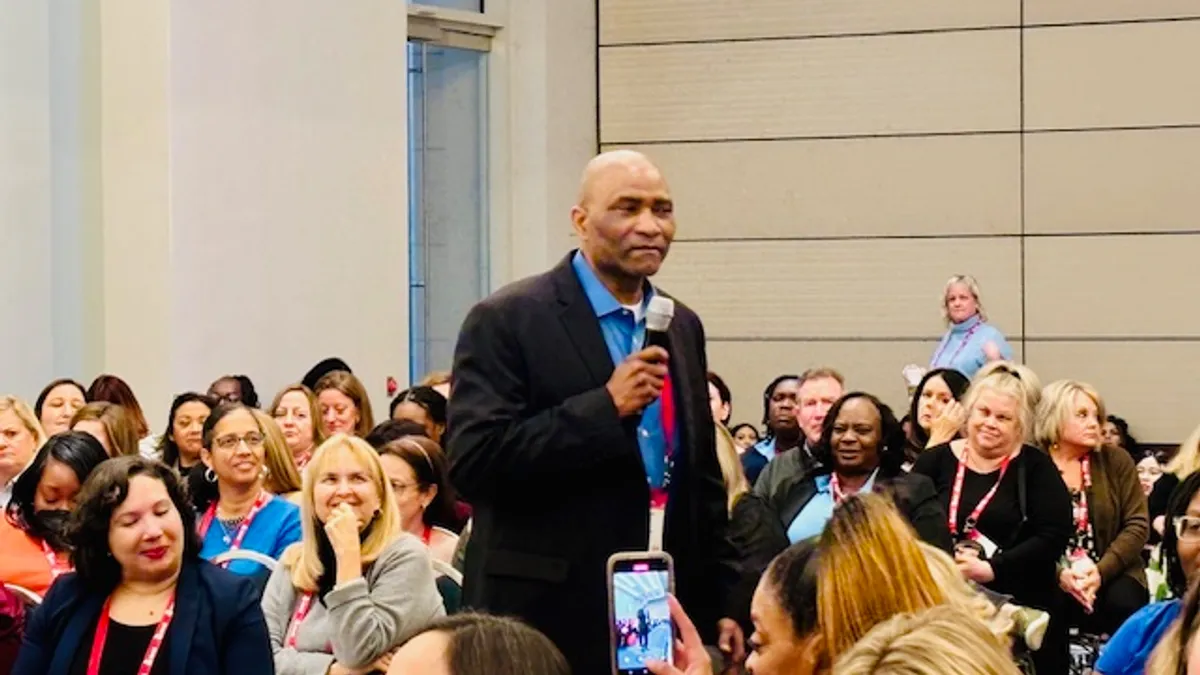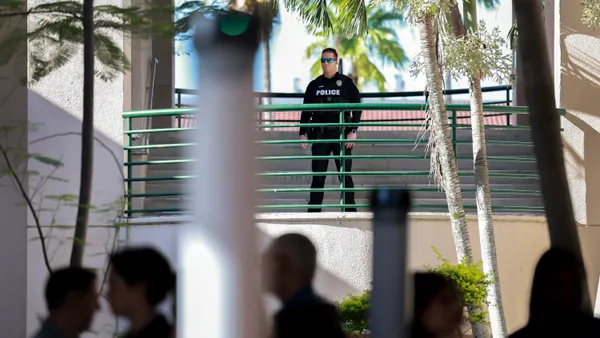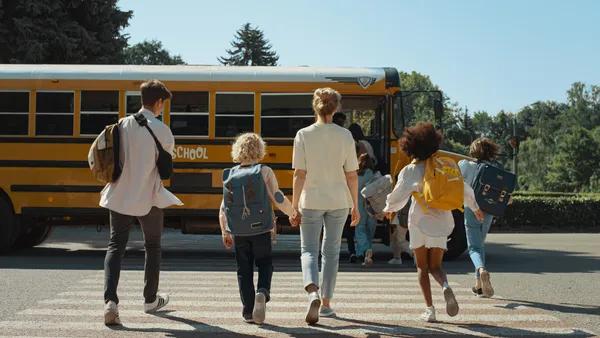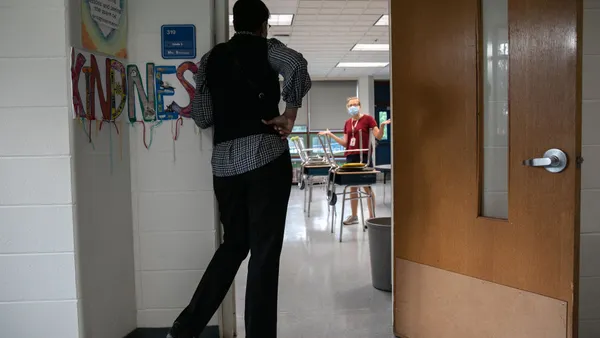WASHINGTON — Being an educator is difficult but critical work, because every student needs an adult who is a consistent presence and who cares deeply about them, Principal Salome Thomas-EL, who leads Thomas Edison Charter School in Wilmington, Delaware, told a roomful of attendees at the ASCD annual conference on Saturday.
Thomas-EL knows how hard leading a school can be. Five days before his ASCD session, a bullet hurtled through his office window while he was in the room, leaving him unharmed but his community shaken.
Traumatic events, such as hurricanes, pandemics and school shootings can — and do — cause many educators to leave the profession. But Thomas-EL focused his session on why educators stay in their jobs and how administrators can support them.
"I wake up every day with determination and go to bed every night with satisfaction, knowing I did everything I could" for students, said Thomas-EL, who has been principal of Thomas Edison, a 600-student K-8 school, for 14 years and an educator for 37 years.
Providing consistency for students
After the bullet hit his office last week, many students asked Thomas-EL if he was OK. Some suggested he take a mental health day, he said. He said he's fine, but days later, what was at the forefront in his thoughts was the role reversal: He's used to helping students through trauma, not the other way around.
The bullet through his office window is a reminder to him that some students live in daily fear of shootings in their neighborhoods. According to news reports, the stray bullet came from an off-campus shooting. The shooting injured one person who was not on school property.
The need for students to have an adult who is a consistent, caring and positive role model is what's kept him in education for decades. "Consistency matters. It also makes them feel safe, giving them a sense of predictability," Thomas-EL told attendees.
But providing a caring environment does not mean schools should be soft on expectations, he said. Rather, schools should strive to bring both rigor and joy to students each day.
Thomas-EL told the story of how years ago at another school, he helped a group of elementary students with disabilities form a chess club. Soon, many other students became interested in chess. The students became proficient players who were beating chess teams at other elementary schools.
The students were ecstatic, but Thomas-EL was unhappy. He saw how some students were becoming arrogant and skipping practice after they started winning. So he arranged for them to play against high school students. Eventually, they were beating the high schoolers, so he had them compete against college students in the area and against elementary school teams in other parts of the country.
He brought that same approach to Thomas Edison, and in 2014, students at the school won the U.S. Chess Federation National Elementary Chess Championship.
Supporting teachers
Thomas-EL tells educators that they are not in the teaching business, but that they are in the learning business. He encourages them to be innovative and curious.
As a principal, he strives to create a school culture built on accountability and trust. "Trust is the engine that drives relationships," he said.
For administrators, this means being open to listening to staff about their barriers, challenges and points of frustration, and then working together to find solutions. It also means working to shield teachers from outside political pressures like book bans or the stress of high-stakes student assessments, he said.
Thomas-EL encourages educators to be curious about their students' lives outside of school and to be sources of strength and joy for students and staff. "Have that positive outlook, because there's so much negative energy around you that you're the one who knocks that negative energy out."
At the end of each school year, students ask him if he'll be returning the next year, and he doesn't want to disappoint them by saying "no."
"My story is not exceptional," he told attendees. "There are thousands of you every day that make that choice to be there when you can be doing anything else in the world.”












